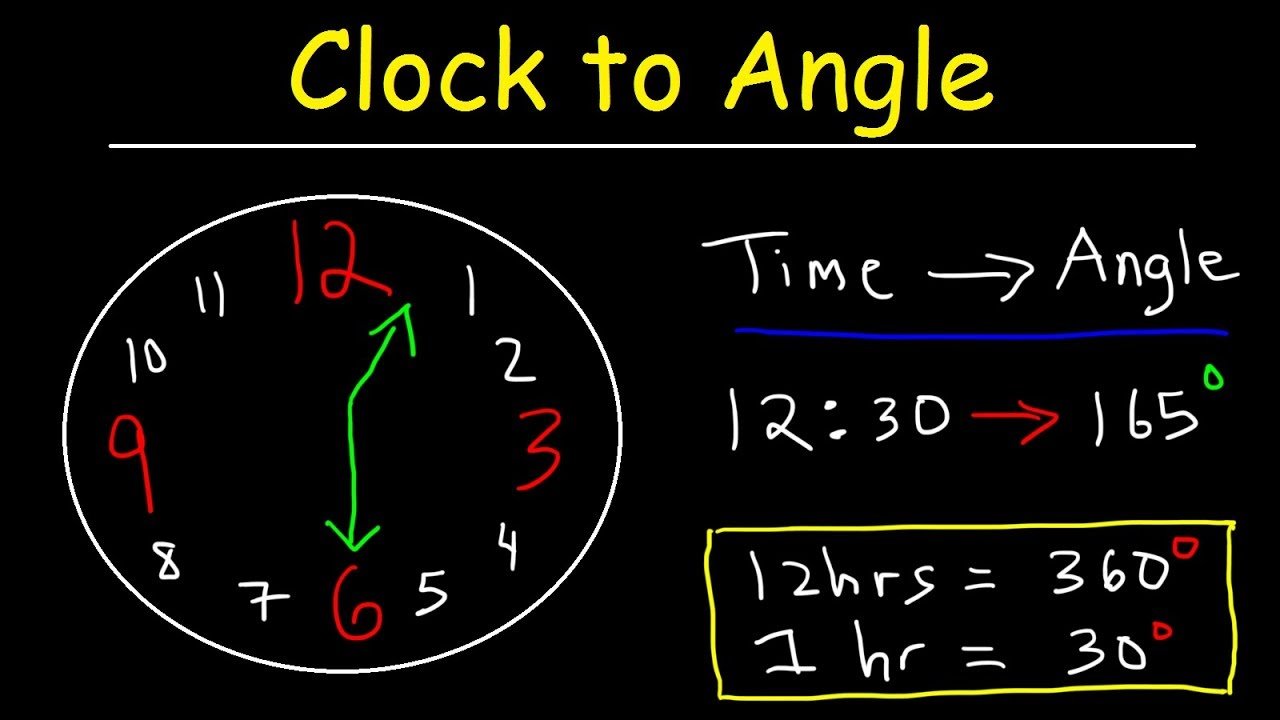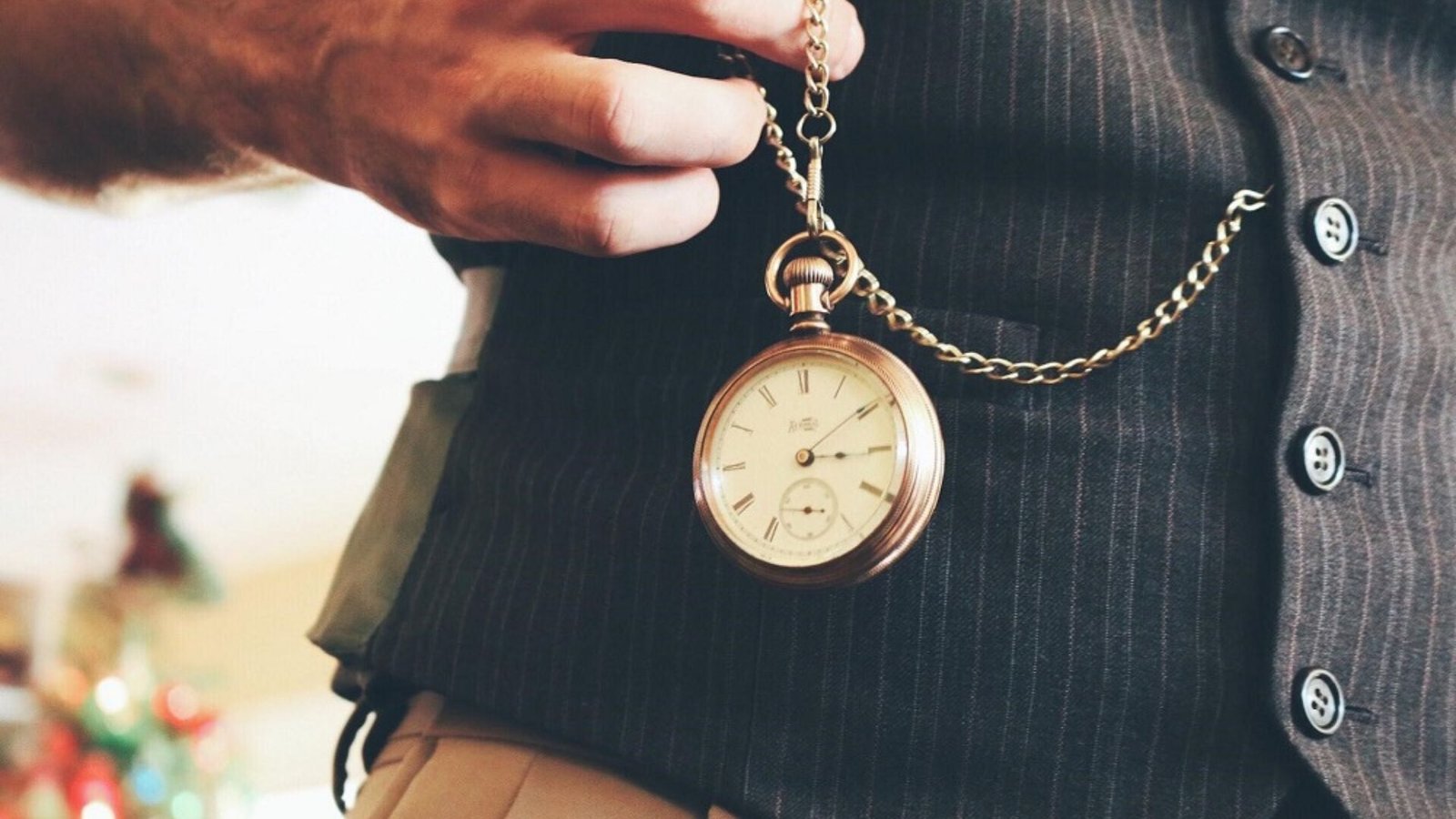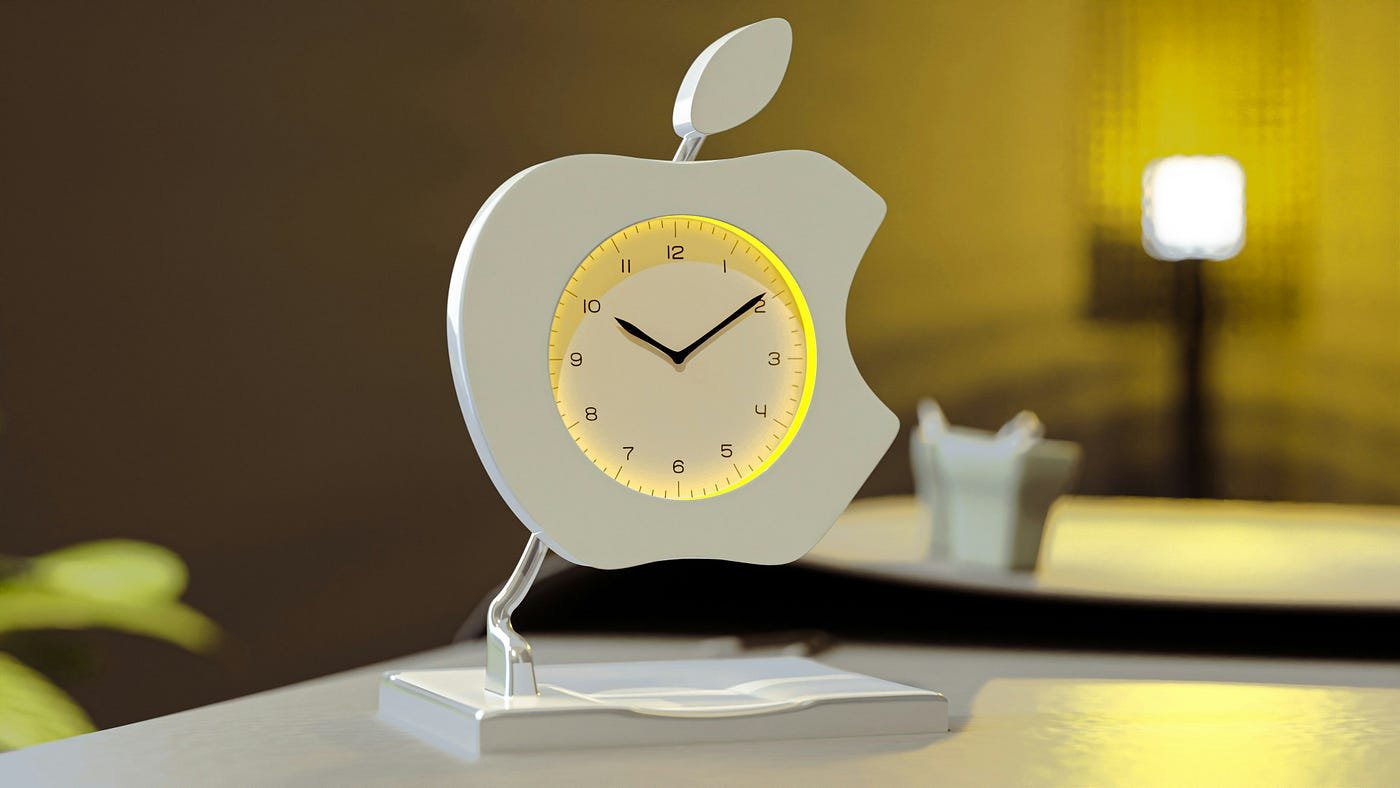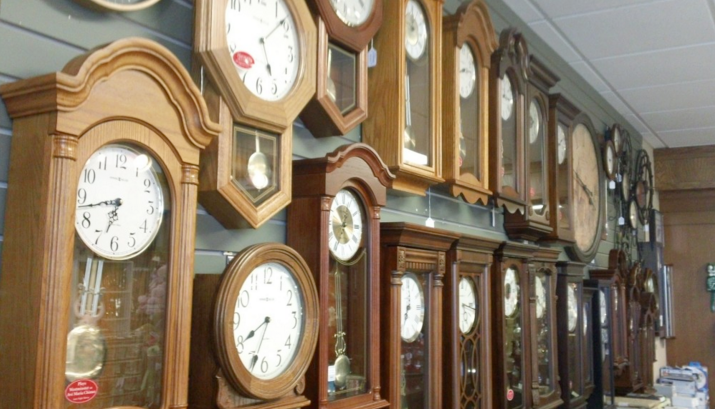Clocks are intricate devices that require regular care to function accurately. While they are generally reliable, issues can arise that cause them to malfunction. Whether it’s an antique timepiece or a modern wall clock, knowing how to identify and troubleshoot common clock problems can save you time and money. Here’s a guide to help you diagnose and fix common issues with your clocks.
1. Clock Stopped Working Completely
Problem: The clock has stopped moving entirely.
Possible Causes:
- Battery Issues: For quartz clocks, the most common cause is dead or low batteries. Try replacing the battery with a fresh one.
- Worn-out Movement: Mechanical clocks may stop due to worn-out gears or internal mechanisms.
Troubleshooting Steps:
- Replace the Battery: Start by replacing the battery with a new one. Ensure the battery is installed correctly, observing the polarity (+ and -) markings.
- Check the Movement: If the battery isn’t the issue, examine the clock’s movement. Look for signs of damage or wear. If you’re not comfortable with mechanical repairs, it may be time to consult a professional.
2. Clock Hands are Stuck or Not Moving
Problem: The clock hands are jammed or not moving despite the clock being functional.
Possible Causes:
- Obstruction: Dust or debris can obstruct the movement of the clock hands.
- Misalignment: The hands may be misaligned or touching each other.

Troubleshooting Steps:
- Clean the Clock Face: Gently clean the clock face and remove any debris that might be causing obstruction.
- Adjust the Hands: Carefully adjust the clock hands. Ensure they are not overlapping or touching each other. Sometimes a slight realignment can resolve the issue.
3. Clock is Running Slow or Fast
Problem: The clock is not keeping accurate time.
Possible Causes:
- Temperature and Humidity: Environmental factors can affect the accuracy of timekeeping.
- Mechanical Issues: For mechanical clocks, an imbalance or worn parts can cause timekeeping issues.
Troubleshooting Steps:
- Check the Environment: Ensure the clock is placed in a stable environment with minimal temperature fluctuations and humidity.
- Calibrate the Clock: For quartz clocks, use the adjustment knob to set the correct time. For mechanical clocks, you might need to adjust the pendulum or balance wheel. Consult the clock’s manual for specific calibration instructions.
4. Chimes Are Out of Sync
Problem: The clock’s chimes are not synchronized with the time.
Possible Causes:
- Chime Mechanism Issues: The internal chime mechanism might be malfunctioning.
- Manual Adjustment Needed: Some clocks require manual resetting of the chime mechanism.
Troubleshooting Steps:
- Reset the Chimes: Consult the clock’s manual for instructions on resetting the chimes. Many clocks have a specific procedure for syncing the chime mechanism with the time.
- Inspect the Mechanism: If resetting doesn’t work, check the chime mechanism for signs of damage or obstruction. Professional repair may be necessary for complex issues.
5. Clock Makes Unusual Noises
Problem: The clock produces grinding, ticking, or other unusual noises.
Possible Causes:
- Lack of Lubrication: Internal gears and components may need lubrication.
- Mechanical Faults: Gears or other components could be damaged or misaligned.
Troubleshooting Steps:
- Lubricate the Clock: Apply a small amount of clock oil to the moving parts. Be careful not to over-lubricate, as this can cause additional issues.
- Check for Misalignment: Inspect the internal gears and components for signs of misalignment or damage. If necessary, consult a professional for repairs.
6. Clock Face is Faded or Discolored
Problem: The clock’s face or numbers are fading or discoloring.
Possible Causes:
- Sun Exposure: Prolonged exposure to sunlight can cause fading.
- Aging Materials: Over time, the materials used in the clock face may degrade.
Troubleshooting Steps:
- Protect from Sunlight: Move the clock to a location where it is not exposed to direct sunlight.
- Clean and Restore: Gently clean the clock face with a soft cloth. For significant discoloration, you may need to consult a professional for restoration.
7. Clock is Not Chiming Correctly
Problem: The clock’s chimes are not sounding correctly or are inconsistent.
Possible Causes:
- Chime Mechanism Problems: Issues with the chime hammers or rods can affect chiming.
- Debris or Blockage: Dust or debris can obstruct the chime mechanism.
Troubleshooting Steps:
- Clean the Chime Mechanism: Carefully remove any dust or debris from the chime area.
- Inspect Chime Hammers: Check the chime hammers and rods for signs of damage or misalignment. Adjust or replace as needed.
8. Clock is Losing Time Regularly
Problem: The clock frequently loses time and needs constant resetting.
Possible Causes:
- Weak Battery: For quartz clocks, a weak or old battery can cause timekeeping issues.
- Mechanical Wear: For mechanical clocks, worn-out gears or components can affect accuracy.
Troubleshooting Steps:
- Replace the Battery: If you’re using a quartz clock, replace the battery with a fresh one.
- Service the Clock: For mechanical clocks, a thorough cleaning and servicing by a professional may be necessary to address wear and ensure accurate timekeeping.
Conclusion
Identifying and troubleshooting clock problems requires a combination of observation, patience, and sometimes a bit of technical knowledge. By understanding common issues and knowing how to address them, you can keep your clocks functioning accurately and looking great. For complex problems or valuable timepieces, don’t hesitate to seek the assistance of a professional clock repair specialist to ensure your clocks are properly maintained and restored.





Why users still use to read news papers when in this technological
globe everything is accessible on web?
First of all I would like to say wonderful blog! I had a quick question which I’d like to ask if you don’t mind.
I was curious to find out how you center yourself and clear your mind prior to
writing. I have had a difficult time clearing my thoughts
in getting my ideas out. I truly do take pleasure in writing however
it just seems like the first 10 to 15 minutes are wasted simply just trying to figure
out how to begin. Any ideas or hints? Kudos!
I think that everything published was actually very reasonable.
However, what about this? suppose you composed a catchier post title?
I ain’t suggesting your information isn’t solid, however suppose you added something to possibly
grab folk’s attention? I mean How to Identify and Troubleshoot Clock Problems is a little boring.
You should glance at Yahoo’s home page and note how they
write news titles to grab viewers interested. You might add a video or a picture or two to
get readers excited about what you’ve written. In my opinion, it would bring your website a little bit more interesting.
Hey! I know this is kinda off topic but I was wondering which blog platform are you using for
this website? I’m getting tired of WordPress because I’ve had problems with hackers and I’m looking at options for another platform.
I would be fantastic if you could point me in the direction of a good platform.
What’s Happening i’m new to this, I stumbled upon this I have
discovered It absolutely useful and it has helped me
out loads. I am hoping to give a contribution & aid different users like
its aided me. Great job.
I love your blog.. very nice colors & theme. Did you make this website yourself or did you hire someone to do it
for you? Plz reply as I’m looking to design my own blog
and would like to know where u got this from.
kudos
It’s in reality a nice and helpful piece of information. I’m happy that you simply shared
this helpful info with us. Please stay us informed like this.
Thank you for sharing.
I appreciate, lead to I discovered exactly what I used to be having a look for.
You have ended my four day lengthy hunt! God Bless
you man. Have a nice day. Bye
Howdy! This article could not be written much
better! Looking through this article reminds me of my
previous roommate! He always kept preaching about this.
I am going to forward this post to him. Pretty sure he
will have a good read. Thank you for sharing!
Good day! This is my 1st comment here so I just wanted to give
a quick shout out and say I genuinely enjoy reading your posts.
Can you recommend any other blogs/websites/forums that cover the same subjects?
Thanks a lot!
Fantastic web site. A lot of useful information here.
I’m sending it to a few pals ans additionally sharing in delicious.
And certainly, thank you in your effort!
Thanks for your marvelous posting! I quite enjoyed reading it,
you may be a great author. I will ensure that I bookmark
your blog and will eventually come back very soon. I want to encourage
that you continue your great work, have a nice weekend!
Thank you, I have recently been looking for info approximately this subject for a while and yours is the greatest I have came upon till now.
But, what in regards to the bottom line? Are you sure in regards to the supply?
I could not refrain from commenting. Well written!
It’s truly very complex in this active life to listen news on Television,
thus I just use world wide web for that purpose, and get the
hottest information.
Awesome issues here. I’m very glad to see your article.
Thank you a lot and I’m taking a look ahead to contact you.
Will you kindly drop me a mail?
Hey There. I discovered your weblog the use of
msn. This is a very well written article. I will be sure to bookmark it
and return to learn extra of your useful information. Thank
you for the post. I will certainly comeback.
Hi, i believe that i saw you visited my weblog thus i
got here to return the desire?.I am trying to to find issues
to improve my website!I guess its ok to make use
of some of your concepts!!
Awesome post.
This design is spectacular! You certainly know how to keep a reader amused.
Between your wit and your videos, I was almost moved to start my own blog
(well, almost…HaHa!) Great job. I really loved what you had to
say, and more than that, how you presented it. Too cool!
Thank you for the good writeup. It in fact was a amusement account it.
Look advanced to more added agreeable from you! However, how could we communicate?
Hello, every time i used to check weblog posts here early in the dawn, as i like to
find out more and more.
I love reading an article that can make people think.
Also, thanks for permitting me to comment!
That is a great tip especially to those fresh to the blogosphere.
Short but very accurate information… Thanks for sharing this one.
A must read article!
It’s really a nice and helpful piece of information. I am glad
that you simply shared this useful information with us.
Please stay us up to date like this. Thanks for
sharing.
I believe what you published made a lot of sense.
But, consider this, suppose you added a little content?
I ain’t saying your information isn’t solid., but what if you added a title that makes
people want more? I mean How to Identify and Troubleshoot Clock Problems is kinda boring.
You might peek at Yahoo’s home page and watch how they create
post titles to get people to click. You might add a related video
or a related pic or two to grab readers excited about what you’ve got to
say. In my opinion, it would make your website a little bit
more interesting.
Der Abschnitt vom Blackjack im Online Casino Rocket umfasst
455 Spiele, aber man soll anmerken, dass Sie einige andere Kartenspiele und Tische mit Live Dealern auch finden können. Im Portfolio werden Spielautomaten, Blackjack,
Roulette, Videopoker, Tischspiele und Live Casino vorgestellt.
Bitte spiele verantwortungsvoll, da Glücksspiel süchtig machen kann und versichere
dich, dass die Online Casinos deiner Wahl sicher und lizenzierte Anbieter sind.
Einige unserer Links auf Gameoasis.de sind Affiliate-Links, für die wir eine Provision erhalten können, sollten sich Kunden über einen unserer Links bei einem Partner-Casino registrieren. Casino Rocket bietet ein gutes Spielerlebnis mit einer großen Auswahl an Spielen und
einer benutzerfreundlichen Oberfläche.
Es bietet maximalen Datenschutz, und Spieler können nur mit der einzigartigen ID und dem Passwort
des Spielers auf ihre Casino-Konten zugreifen. Wie viele konkurrierende Casinos wurde auch dieses mobilfreundliche Online-Casino mit Blick
auf mobile Spieler entwickelt und bietet einen tadellosen Service und Benutzerfreundlichkeit beim Spielen unterwegs.
Das Casino bietet viele Spiele an, die leicht zu meistern sind, weil sie ausschließlich vom Zufall abhängen. Casino Rocket ist auch die Heimat vieler Live-Spielshows,
in denen charismatische Moderatoren TV-Unterhaltung und Glücksspiele miteinander verbinden. Kartenspiele, die im Casino-Abschnitt für Tischspiele
gespielt werden, sind für Spieler zu empfehlen, die an einem rundenbasierten Spiel gegen Computer interessiert
sind und viel Zeit haben, sich zu erholen und ihren nächsten Zug zu planen. Jackpot-Spiele sind aufgrund der unglaublichen Preise,
die sie bieten, die aufregendsten von allen, aber seien Sie bitte vorsichtig.
Es gibt sieben Stufen im Treueprogramm, und wenn die Spieler in diesen Stufen aufsteigen, können sie neue Belohnungen,
spezielle Angebote und einzigartige Preise erhalten. Insgesamt ist es ein solides Angebot für Spieler,
die ihre Spielzeit verlängern und erkunden möchten, was das
Casino zu bieten hat. Wir verwenden auf
unseren Seiten Affiliate-Links und erhalten möglicherweise
eine Provision für Kunden, die an Online Casinos verwiesen werden. Casino.guru sieht
sich als eine unabhängige Informationsplattform über Online Casinos
und Online Casinospiele, die von keinem Glücksspielanbieter oder irgendeiner anderen Instanz kontrolliert wird.
Teilen Sie Ihre Meinung mit oder erhalten Sie Antworten auf Ihre Fragen.
References:
https://online-spielhallen.de/ihr-ultimativer-leitfaden-zum-sol-casino-aktionscode/
Häufig werden diese Angebote in Form von „Free Spins“ (Freispielen) vergeben. Bei RocketPlay casino Germany erwarten Sie nicht nur klassische Casinospiele, sondern auch die neuesten und beliebtesten Slots.
Es ist entscheidend, mit einer Strategie zu spielen, die dabei hilft, Verluste zu minimieren und Gewinnchancen zu maximieren. Die
Auswahl des richtigen Anbieters und die Vielfalt
beim Online Casinospielen sind entscheidend für ein sicheres und unterhaltsames Spielerlebnis.
Vergessen Sie nicht, dass die Einschaltenoption in der Demonstrationsversion für alle
Tischspiele außer Live Casino verfügbar sind.
Im gleichnamigen Abschnitt vom RocketPlay Casino befinden sich
die Top Tischspiele in verschiedenen Variationen.
Für die Bequemlichkeit der deutschen Spieler sind die Kategorien Spielautomaten,
Top, Neu, Empfohlen, Bonuswette, Jackpot, Kryptospiele, Tischspiele im Lobby der Webseite vorausgesehen. Machen Sie die erste Einzahlung ab
20 EUR und holen Sie sich Ihren 100%-Bonus 100 Freispiele auf die erste Einzahlung werden hinzugefügt ein Satz
von 20 pro Tag für 5 Tage.
Die App ist sowohl für iOS- als auch Android-Benutzer
optimiert und bietet dieselbe Funktionalität wie die
Desktop-Version. Unser Rocketplay Mobile Casino nutzt Progressive
Web App (PWA) Technologie, um deutschen und österreichischen Spielern eine nahtlose mobile Erfahrung zu bieten. Unser Casino bietet
deutschen und österreichischen Spielern eine umfassende Auswahl an sicheren Zahlungsmethoden. Unser Casino arbeitet mit insgesamt 88
erstklassigen Softwareanbietern zusammen, um deutschen und österreichischen Spielern die bestmögliche
Spielerfahrung zu bieten. Neben traditionellen Casino-Spielen bieten wir eine
vielfältige Auswahl an alternativen Gaming-Optionen. Unser Rocketplay Live Casino bietet über 1025 Live-Spiele von 17 spezialisierten Anbietern.
References:
https://online-spielhallen.de/buran-casino-auszahlung-der-umfassende-leitfaden-fur-spieler/
Dive into a realm of excitement and luxury, where every spin could be a win. Also
love being able to set win/loss limits for auto-play.
I like switching between auto-play and manual in slots, and they let you customize that.
Their VIP managers are amazing & their game selection is
over the top ! The first feeling on site was by the time that it had everything i wanted to gamble
at, over the time there are some own quircks to understand.One
of them being a need to wager 3 times the dep…
I like games on this platform, and there’s always something new to
explore because the collection is refreshed frequently.
I love national casino , it’s the best casino !
The quality of the live dealer games, with professional dealers and smooth video, is also a highlight for many.
When it comes to playing for real cash, you should know a thing or two about the payment options at your disposal.
Remember that all National Casino games are available in demo mode, except for live dealer
ones.
References:
https://blackcoin.co/betman-casino-a-comprehensive-review-for-australian-gamblers/
Another point is that the casino offers a variety of payment options for
the security and convenience of all players. In this section,
we will examine some of the best online casino game strategies
for maximizing your winnings. It is really easy to play slots online; all it takes is a
quick sign-up, a quick deposit to cover your bets, and you are good to go.
Themed slots and progressive jackpots add to the excitement, offering substantial rewards and immersive gaming experiences.
With approximately 85% of gamers in Australia using smartphones for
gaming, mobile compatibility is a highly preferred
feature. A diverse game library and 24/7 customer support ensure a comprehensive and enjoyable gaming environment at Rakoo Casino.
The platform frequently runs promotional events, allowing players to earn additional rewards.
Our support team provides resources and assistance for those experiencing gambling-related concerns.
Should you ever feel that gambling is becoming a concern, our support team is
readily available to provide assistance and direct you to helpful resources.
You’ll also find famous jackpot slots and the most famous jackpot slots, such as Mega Moolah, known for their massive, life-changing prizes and global recognition. Licensed by
Curacao, our casino RocketPlay operates under license number 8048/JAZ, ensuring full compliance with
international standards.
We’ve created the ultimate gaming destination with everything Australian players need for an exceptional experience.
You know how the online gambling world is always buzzing,
constantlyevolving with new tech, new games, and exciting new ways to play?
So, whether you’re commuting to work, enjoying a quiet moment at thecottage, or just chilling out on the couch after
a long day, your nextbig win is only ever a tap away with rocketplay casino mobile.
Just openup your regular web browser on your
mobile device, head to therocketplay casino Canada website, log in, and boom – you’re instantlyready to Play
& Win Real Money!
References:
https://blackcoin.co/slot-machine-tutorial-for-beginners/
online casino that accepts paypal
References:
http://ww.enhasusg.co.kr
online casino usa paypal
References:
https://kaymack.careers/employer/use-paypal-to-play-poker-at-888poker/
paypal casino sites
References:
https://backtowork.gr/employer/best-online-casinos-in-australia-top-casino-sites-for-2025/
casino mit paypal
References:
https://www.jobs2teens.com/companies/best-paypal-online-casinos-accepting-us-players-2025/
casino mit paypal einzahlung
References:
https://www.revedesign.co.kr/bbs/board.php?bo_table=free&wr_id=320701
casino avec paypal
References:
https://australiaremotejob.com/employer/best-new-online-casinos-australia-2025-recently-launched/
I happen to be writing to make you know what a fabulous experience my princess gained checking your blog. She learned several things, most notably how it is like to possess an incredible teaching mindset to have a number of people easily comprehend several extremely tough matters. You undoubtedly did more than her expectations. I appreciate you for delivering those productive, trusted, informative and also cool tips about that topic to Emily.